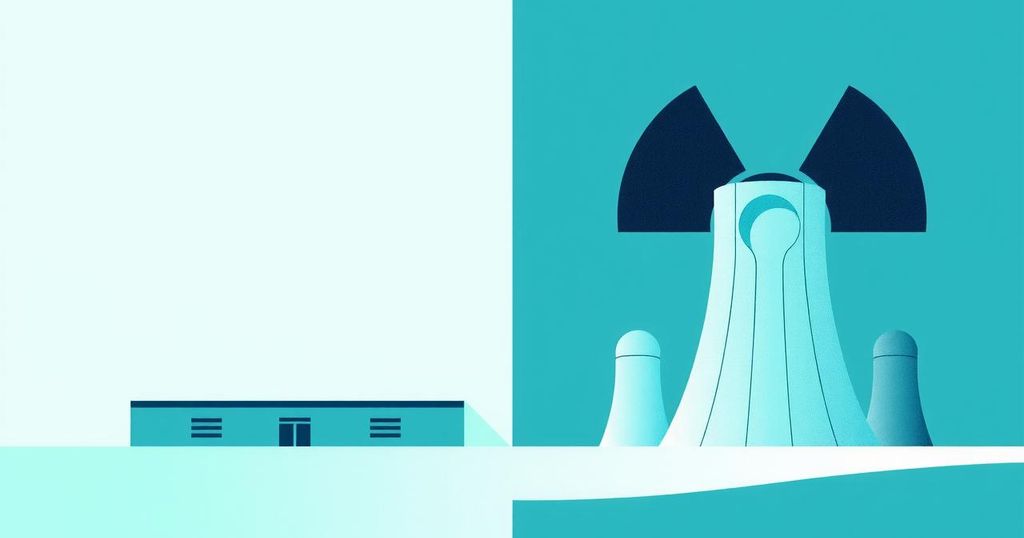Global news
] WITKOFF, ABBAS ARAGHCHI, ASIA, ATOMIC ENERGY ORGANIZATION OF IRAN, AUSTRIA, BAD, EUROPE, FOREIGN MINISTRY, IAEA, INTERNATIONAL ATOMIC ENERGY AGENCY, INTERNATIONAL RELATIONS, KA, KAROLINE LEAVITT, MIDDLE EAST, NORTH AMERICA, NUCLEAR POLICY, NUCLEAR WEAPONS, OMAN, REPUBLIC OF IRAN, SANCTIONS, STEVE, TRUMP, U. S, UNITED STATES, US-IRAN RELATIONS, WHITE HOUSE, WITKOFF
Isaac Bennett
0 Comments
White House Urges Iran to Accept Nuclear Deal as IAEA Reports Uranium Enrichment Spike
The White House urges Iran to accept a nuclear deal following an IAEA report indicating a spike in uranium enrichment. Iran’s stockpile increased almost 50% since February, raising concerns about its nuclear intentions. Iranian officials reject the IAEA’s claims, maintaining their program is peaceful. Israel urges global action against Iran’s nuclear ambitions, citing ongoing non-compliance with international obligations.
The White House has recently reiterated its stance on Iran, emphasizing that it is in Iran’s “best interest to accept” the proposal for a nuclear deal. This statement comes on the heels of a concerning report from the International Atomic Energy Agency (IAEA) indicating a significant uptick in Iran’s stockpile of near-weapons-grade uranium enrichment. White House Press Secretary Karoline Leavitt declared, “President Trump has made it clear that Iran can never obtain a nuclear bomb.”
In a detailed statement, Leavitt highlighted that Special Envoy Steve Witkoff has delivered a comprehensive proposal to the Iranian regime but opted not to disclose specifics to the media. The IAEA’s report revealed that the stockpile of uranium enriched up to 60% had surged to 900.8 pounds as of May 17, marking a nearly 50% increase since the last report in February, which documented 605.8 pounds.
The agency noted that Iran stands out as the only non-nuclear-weapon state to produce such enriched material, a troubling development that raises alarm among international observers. The report stressed that just 92 pounds of uranium enriched to 60% could suffice to construct an atomic bomb if the enrichment level reaches 90%. Iran has continually asserted that its nuclear endeavors are aimed at peaceful purposes, yet U.S. intelligence maintains that the country is venturing into activities that could position it to develop a nuclear weapon, should it choose to do so.
In response to the IAEA’s findings, Iran’s Foreign Ministry and the Atomic Energy Organization jointly criticized the report, referring to it as based on “unreliable and differing information sources” while alleging bias and unprofessionalism. They expressed clear dismay, suggesting the report was a result of political pressures imposed on the agency.
On Thursday, Iranian Foreign Minister Abbas Araghchi expressed skepticism regarding the likelihood of swiftly achieving a U.S.-Iran nuclear deal. He stated, “Iran is sincere about a diplomatic solution that will serve the interests of all sides,” emphasizing that any agreement would need to fully eliminate sanctions and respect Iran’s nuclear rights, particularly concerning enrichment.
Additionally, Oman’s Foreign Minister Badr al-Busaidi presented a formal U.S. proposal that calls for an end to Iran’s uranium enrichment activities. The plan reportedly includes a regional consortium involving Iran, Saudi Arabia, and other Arab states, alongside the U.S., aimed at producing nuclear power, as reported by The New York Times.
In a noteworthy development, Israeli Prime Minister Benjamin Netanyahu also commented on the IAEA’s report, labeling it “grave.” His office released a statement underscoring the serious implications of Iran’s nuclear aspirations: “Despite countless warnings by the international community, Iran is totally determined to complete its nuclear weapons program.” He argued that the scale of Iran’s uranium enrichment activities clearly aligns with intentions to develop nuclear weapons rather than civilian applications.
Netanyahu urged immediate action from the international community, citing Iran’s non-compliance with its obligations under the Non-Proliferation Treaty (NPT) and ongoing lack of cooperation with IAEA inspectors. He vehemently stated, “The international community must act now to stop Iran.”
In conclusion, the situation surrounding Iran’s nuclear program remains tense. The U.S. government is pressing Iran to accept a deal amid rising concerns indicated by IAEA reports about uranium enrichment. Iran’s rebuttal reflects its own position, asserting it seeks peaceful nuclear activities while facing scrutiny and skepticism from the West and Israel. The international community, led by figures like Netanyahu, continues to call for decisive action to prevent further escalation of the nuclear threat.
Original Source: www.foxnews.com




Post Comment